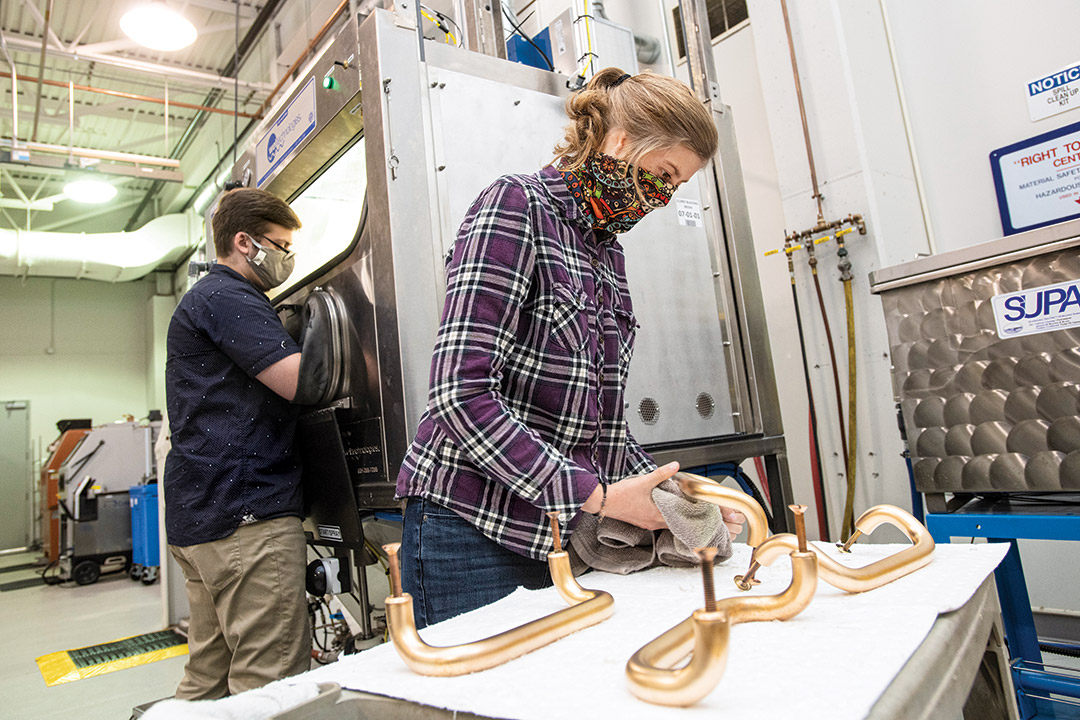Strategic updates to campus will last beyond the pandemic
A. Sue Weisler
A team of researchers from Golisano Institute for Sustainability and the Center for Integrated Manufacturing Studies conducted testing on door pull handles prior to the start of fall semester.
RIT spent more than $8.2 million to make RIT’s campus as safe and clean as possible so that students, faculty, and staff could study and work confidently and comfortably. The university’s Infrastructure and Health Technologies Task Force implemented a variety of changes to RIT’s academic settings, housing, and dining designed to fight the spread of the coronavirus.
While the immediate concern was fending off COVID-19, the task force was also thinking long term.
“We were being strategic about what we put in place, and many of these changes will continue to benefit the university for years to come,” said John Moore, associate vice president of Facilities Management Services and a co-chair of the task force. “For example, the air ionization systems will continue to provide fresher, cleaner air for years, and things like mobile food ordering are introducing new, convenient options for our customers. We put a lot of thought and care into the changes we made.”
One project that will continue to provide benefits in the long term capitalized on RIT’s legacy and expertise in materials analysis, materials testing, cleaning systems, and manufacturing engineering.
When research demonstrated that copper and the metal’s alloys act to kill bacteria and viruses on surfaces—including SARS-CoV-2, which causes COVID-19—a team from Golisano Institute for Sustainability and Facilities Management Services moved quickly to find ways to leverage copper’s germ-fighting properties on high-touch surfaces such as door handles and pulls.
Working under tight deadlines, the team evaluated 360 mostly exterior door handles from more than 40 campus buildings to determine their metallic makeup.
When the copper content was verified, the team cleaned the handles using a specialized slurry blast machine from Wet Technologies Inc., whose president and founder is RIT alumnus Frederick Greis ’84 (manufacturing technology).
RIT faculty from across the university contributed in other ways to help ensure RIT made sound long-term decisions.
Professor André Hudson, head of the Thomas H. Gosnell School of Life Sciences, tested products ranging from air ionization devices to titanium dioxide surface treatments to evaluate their effectiveness in killing and filtering microorganisms such as viruses, bacteria, and fungi.
Jennifer Schneider, the Eugene H. Fram Chair of Applied Critical Thinking and a professor in the Department of Civil Engineering Technology, Environmental Management and Safety, is a certified industrial hygienist whose background is in disaster science and HAZMAT.
She advised the task force on putting the right mix of controls in place—engineered systems, behavioral expectations, and personal protective equipment.
While many are hoping the pandemic will soon be a distant memory, it caused changes at RIT that will continue to make it a cleaner, safer place for years to come.






